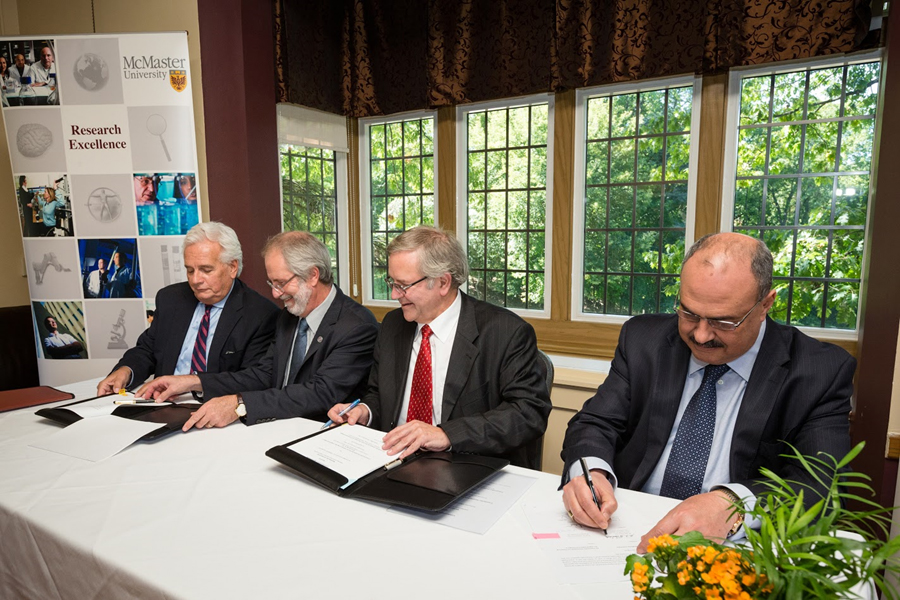Signed & Sealed: Fraunhofer IZI and McMaster University (Canada) Sign Memorandum of Agreement
Fraunhofer IZI (Leipzig, Germany) and the McMaster University (Hamilton, Canada) have signed a Memorandum of Agreement, marking the next phase in their collaborative research partnership.

A delegation of senior executives and scientists from Fraunhofer IZI visited McMaster in September for research presentations, a tour of McMasters world-renowned research centres and to participate in the formal signing ceremony.
McMaster’s vice-president of research and international affairs, Mo Elbestawi, acknowledged the visit and the signing as a critical step in the long-term plan to create a Fraunhofer Project Centre, headquartered in Hamilton. Ideally, he says, the Centre will be a “catalyst in further developing the region’s bioeconomy.”
The next immediate step is to complete two pilot projects: The first will focus on the development of novel tools for cancer immunotherapy and is led by Professor Jonathan Bramson, director of the McMaster Immunology Research Centre and Christopher Oelkrug, head of the Fraunhofer IZI´s Immunotherapy / Oncology Unit. The second will focus on reducing the cost of tuberculosis diagnosis and enabling a more effective treatment selection. This project is led by assistant professor of engineering physics Leyla Soleymani, on the Canadian site and Dr. Dirk Kuhlmeier, head of the Nanotechnology Unit at Fraunhofer IZI.
The most recent visit highlighted additional areas for research partnership opportunities between the two institutions, namely cognitive linguistics and biointerfaces research
“This is just the beginning of a long-term partnership,” says Elbestawi, who will visit Fraunhofer IZI in November. “There are enormous opportunities to work together to develop a number of industry-relevant R&D projects and to lay the foundation for future investment from public and private partners in both jurisdictions.”
Director of Fraunhofer IZI, Frank Emmrich, agrees the collaboration potential is significant. “Having visited McMaster twice, learning first-hand about their research capabilities and seeing some of their world-class facilities, we know this is an institute with which we have much in common and we are anxious to move this project along – a project that will bring economic benefits to both regions.”